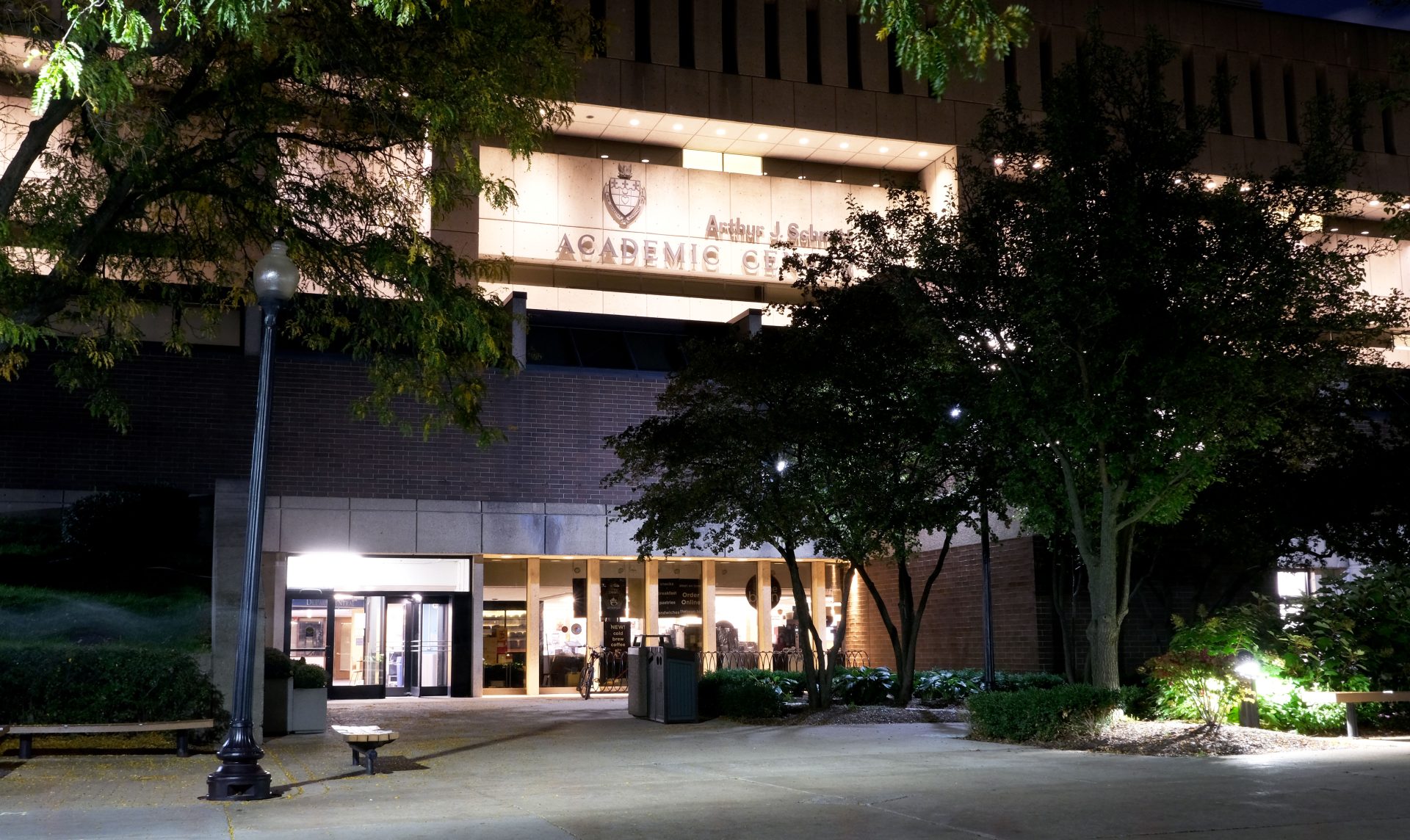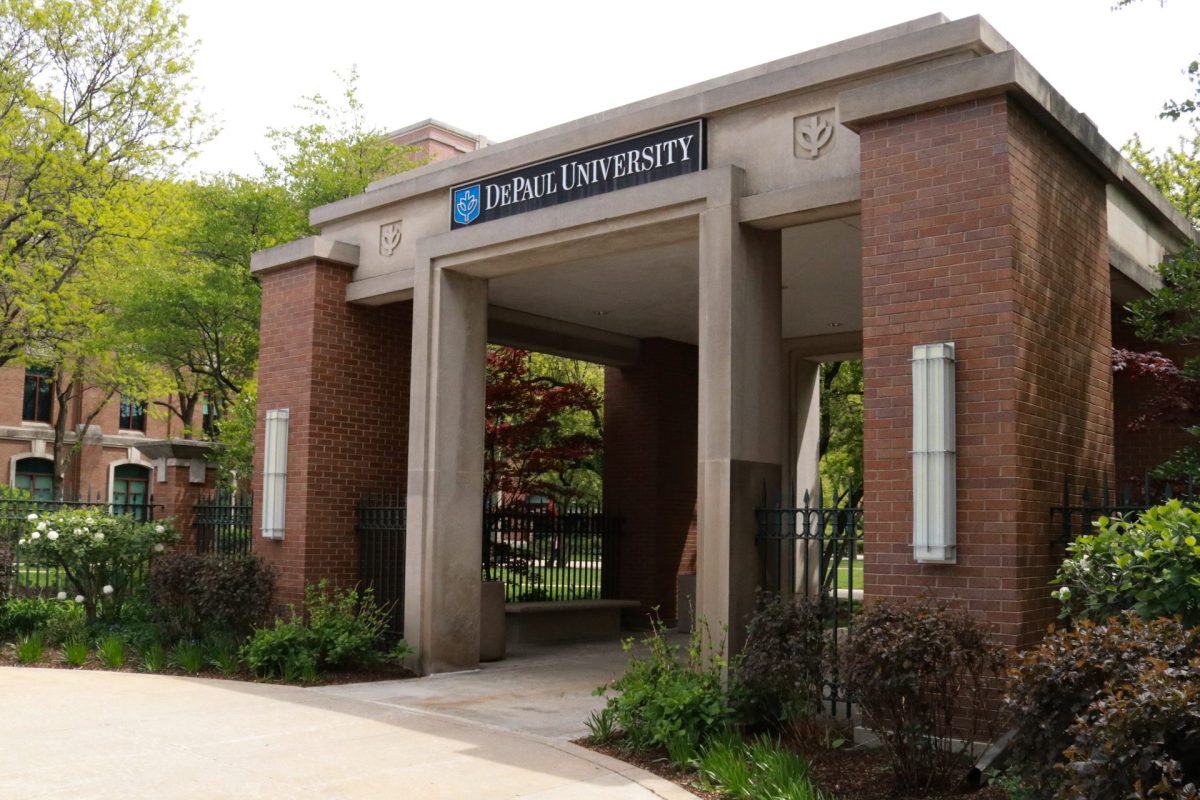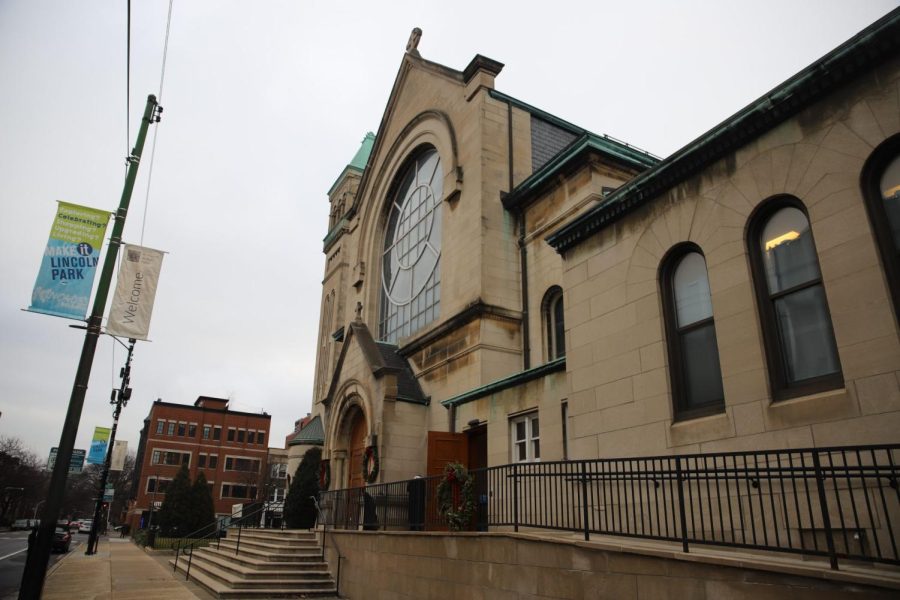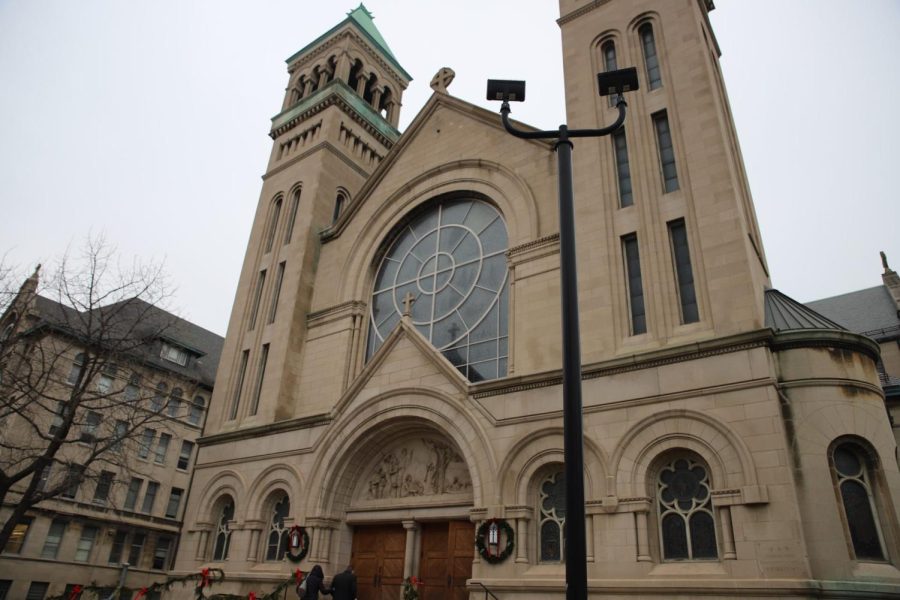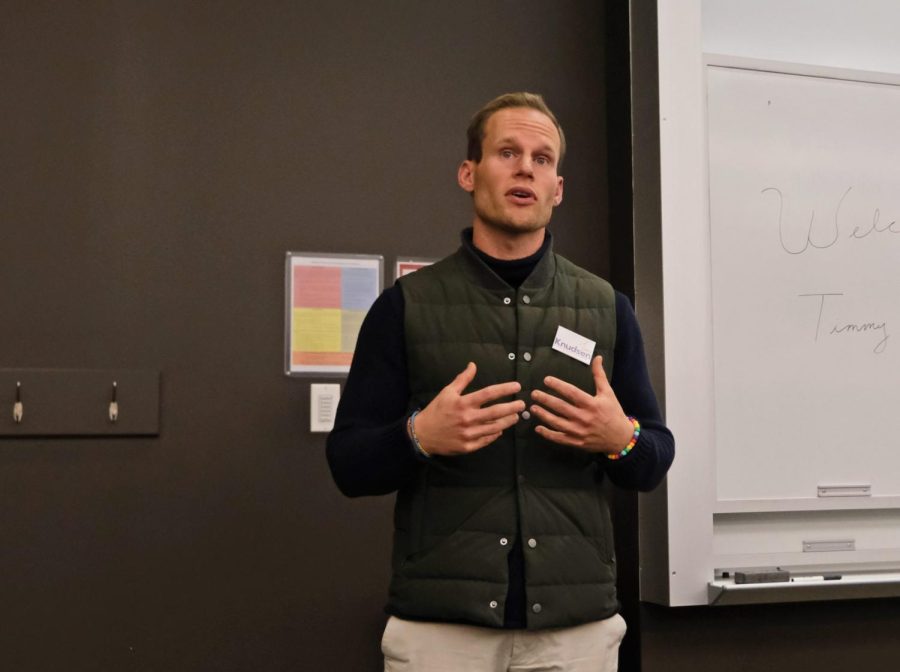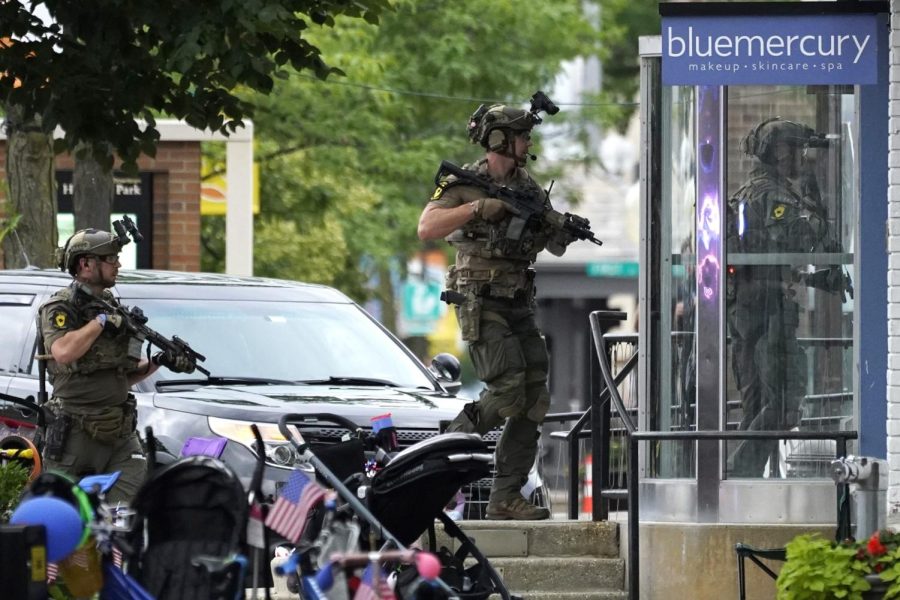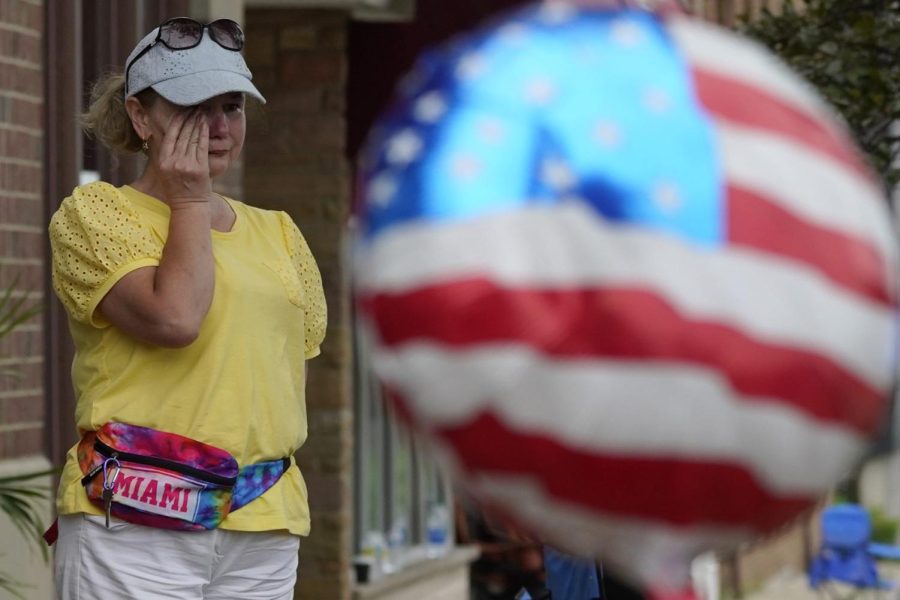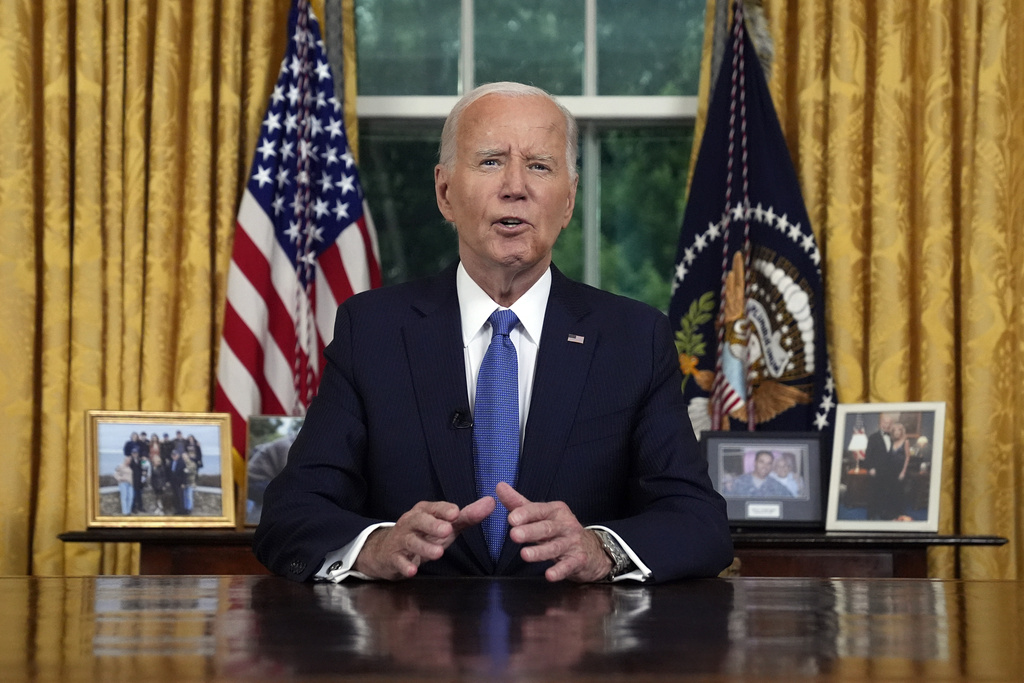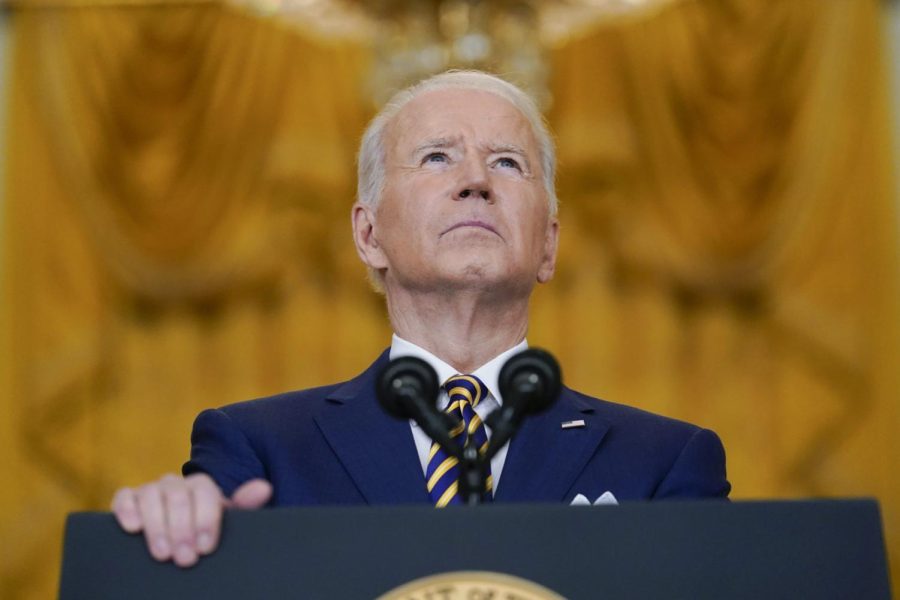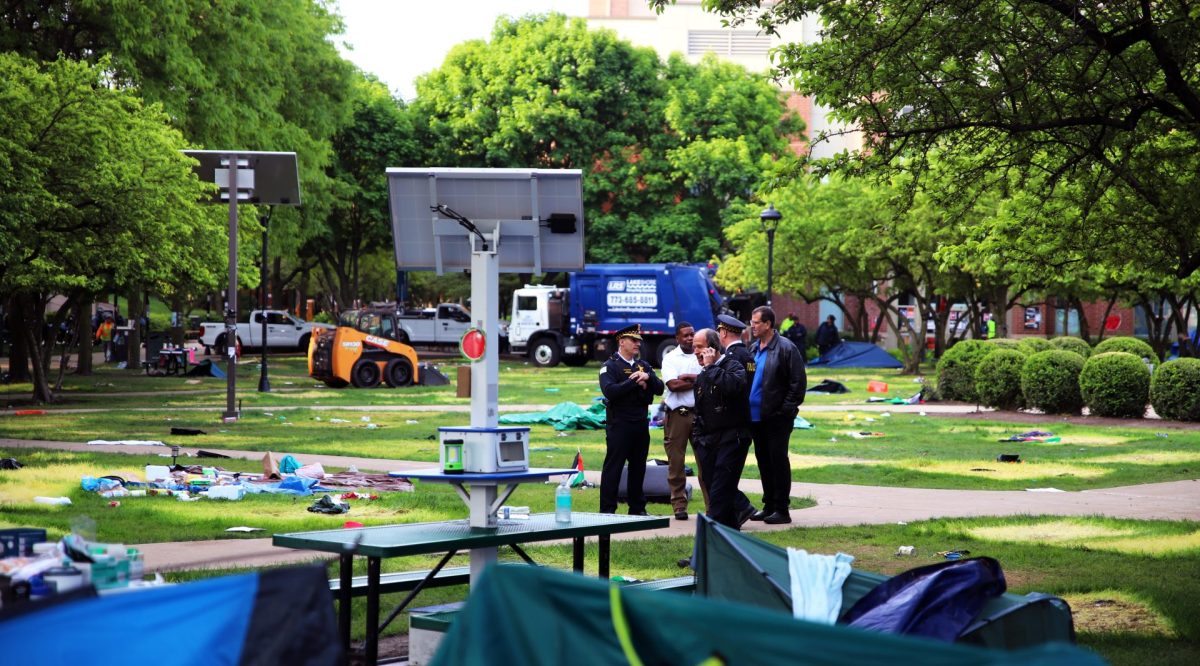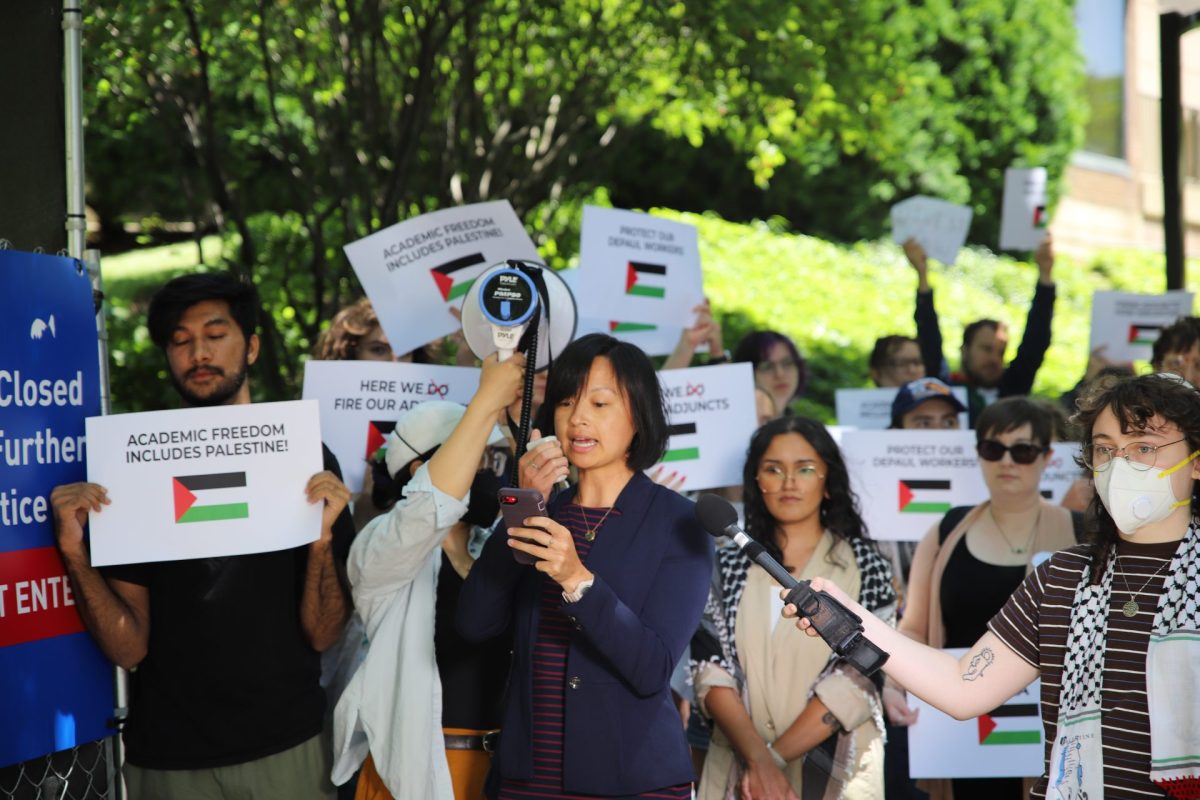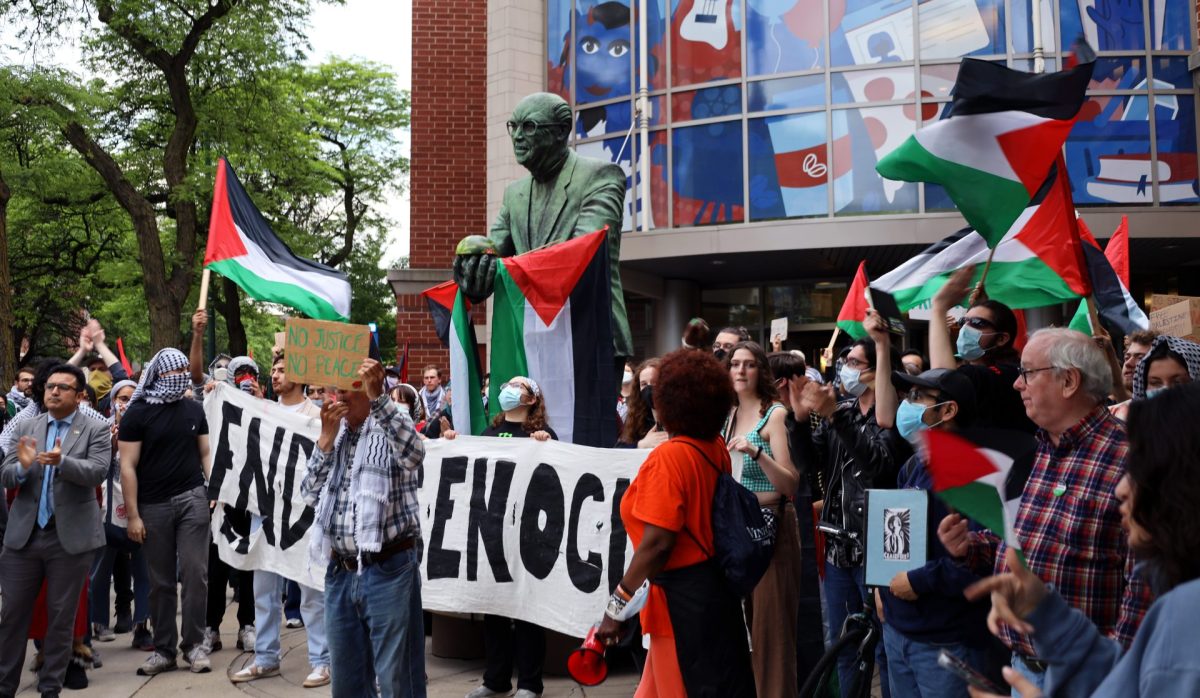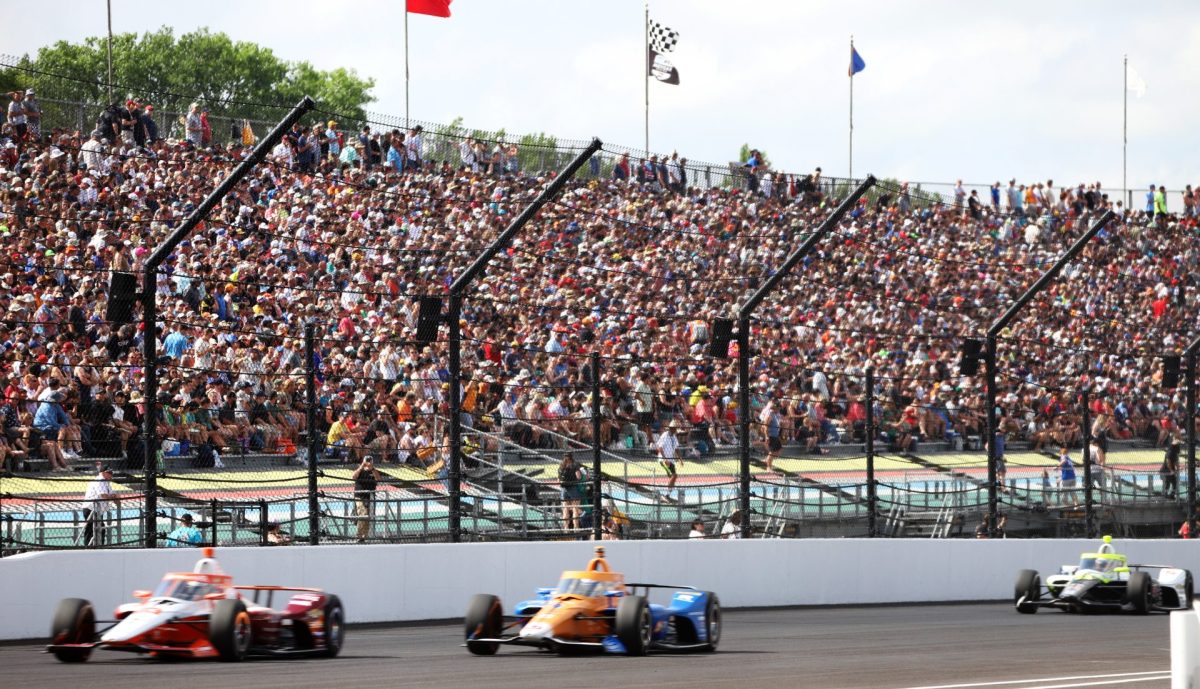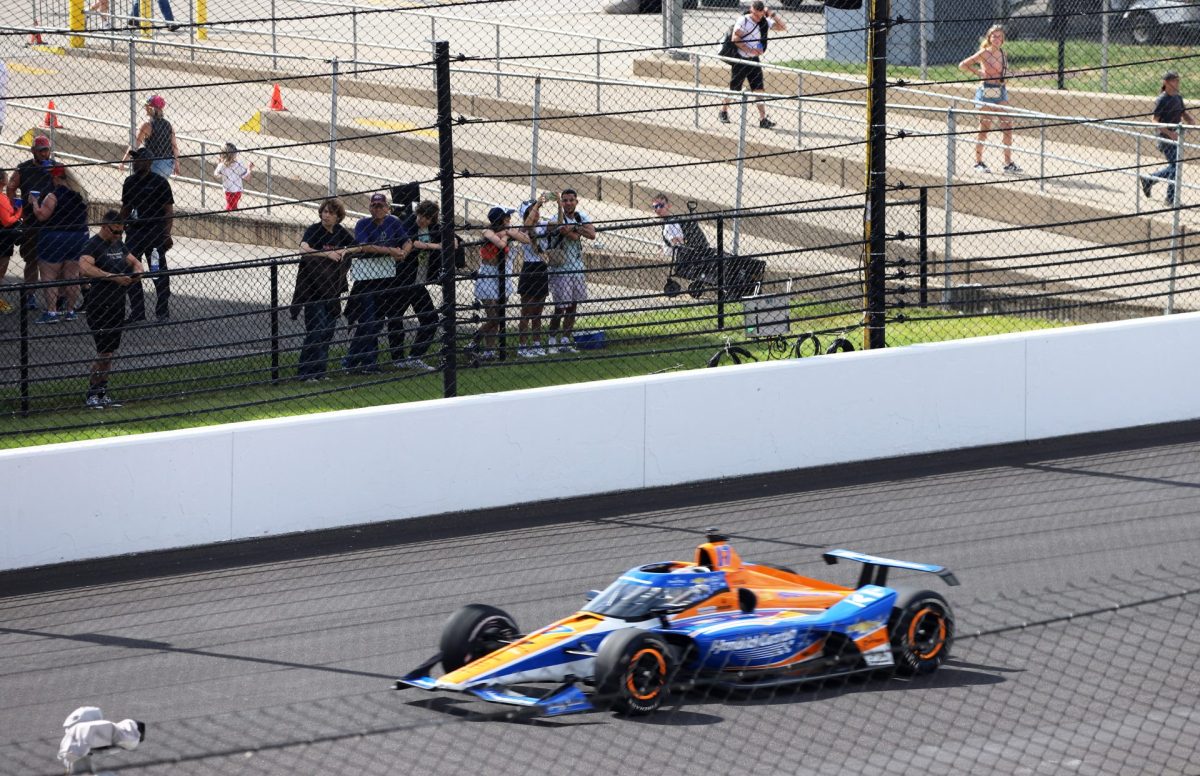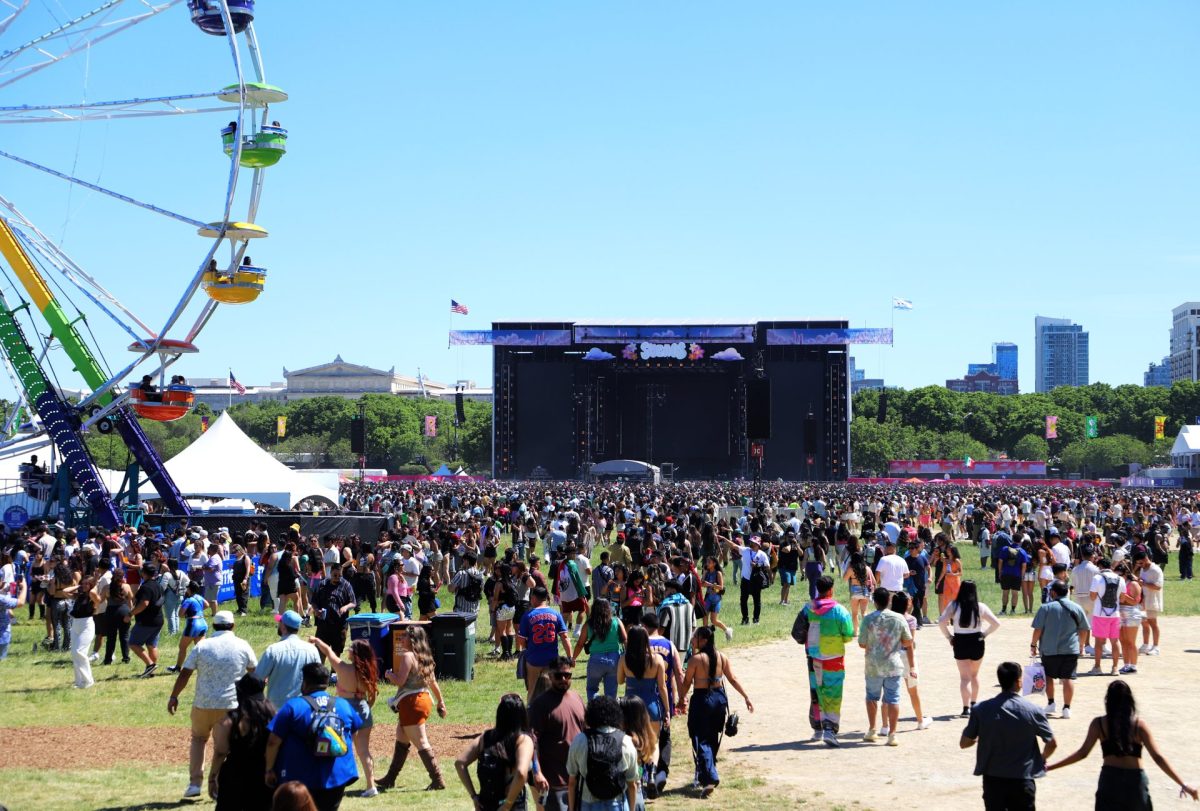First-year student Ella “Ell” Gutin was sitting on the Quad with a friend on Sept. 23. Because it was still early, Gutin was not concerned for her safety.
That was until about 10 p.m., when she and the other students were approached by two men. They demanded all of Gutin and her friends’ belongings and fled in a vehicle on Seminary Avenue.
“Now I’m scared to go to class,” Gutin said.
“[My friends were] surprised that it was on campus…They were all like, ‘I hope this doesn’t happen to me.’”
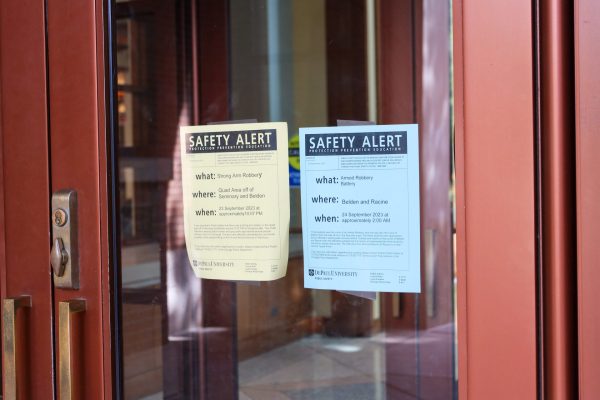
Policies regarding public safety around campus will start as early as Oct.2. After a spike in armed robberies and batteries across Lincoln Park, DePaul is implementing ID checks in certain buildings, more patrols and additional training for public safety officers.
When first-year students come to DePaul, they all go through orientation, including a conversation with a Public Safety officer. The orientation includes a summary of DePaul’s safety offerings and who students should contact in case of an emergency.
Gutin believes that if Public Safety had a post on the Quad, they could have prevented the robbery.
Every weekend since DePaul reconvened for the academic year, there has been a robbery or assault reported on campus. At the time of publishing, there were a total of five battery alerts and five robberies since Aug. 31.
This is part of a larger trend. Robberies throughout the city rose dramatically in the first month of fall quarter, compared with the 2022 school year.
Last September, there were four reported robberies in Lincoln Park. This year, there were 32 reported robberies this past month. That is a 700% increase, according to Chicago’s Violence Reduction Dashboard.
In the Loop — home to DePaul’s downtown campus — robberies have risen 97.4%, with 37 reported this September, compared with 19 last year, according to the dashboard.The dashboard also shows there has been a 51.3% increase in robberies this past year in the city. People aged 20-29 are most at risk of being victimized.
After the string of robberies and battery last weekend, DePaul President Robert Manuel decided it was essential to take swift action.
We probably would’ve thought through all the answers and then announced it, but I wanted to push it forward quicker.”
— President Robert Manuel
“I announced these things quicker than I might have, which is why you’re going to see different rollouts of them,” Manuel said in an interview with The DePaulia on Friday. “We probably would’ve thought through all the answers and then announced it, but I wanted to push it forward quicker.”
Attacks on students in the spring led to a Student Government Association (SGA) summit on public safety, in response to the incidents. Manuel said the “impetus for the conversation about safety and security” has risen.
DePaul hosted another safety summit Sept. 14. At that meeting, students discussed safety concerns and brainstormed potential solutions— including becoming a closed campus.
Robert Davis Jr., director of community affairs and activism and director of advocacy for the Black Student Union (BSU), said the summit was held at an inaccessible time for many students.
“Not enough students of color were able to go,” Davis said. “Therefore, they couldn’t get our opinions, our concerns, our thoughts.”
Manuel said that while DePaul is implementing precautionary safety measures, the university is still not a closed campus.
DePaul’s SGA also responded to the rising crime, creating an ad hoc committee for public safety.
While DePaul’s administration hoped to have more time to analyze potential solutions and consequences— the weekend of Sept. 23 was ultimately a precipice for the university. In a late-night email sent out Sept. 25, the Office of the President announced new safety measures they plan to implement in the coming weeks.
The original email, co-authored by Manuel, Vice President Eugene Zdziarski and Public Safety Director Bob Wachowski, stated that ID checks for the upper levels of the DePaul Center would begin Oct. 2. Manuel told The DePaulia this is no longer the case.
ID checks to access the upper levels of the DePaul Center won’t begin until Oct. 4 at the earliest, Russel Dorn, a university spokesperson said.
In addition to the updated ID policy, Manuel also announced some shorter-term changes already being implemented. They include improved lighting in parking garages and increased CPD and Public Safety patrols.
Manuel said due to the quick rollout of these safety measures, there will be room for them to be fine-tuned as the university gets more information.
Aside from the bureaucracy of making a change like implementing ID checks, the prospect of the heightened security measures leading to racial or ethnic profiling is on some students’ minds. To combat these concerns, DePaul is requiring all safety officers to go through diversity, equity and inclusion training.
As Black students, we’re scared we’re going to get targeted on campus just for being students … because we fit Public Safety’s profile of what a criminal is”
— Robert Davis Jr., director of community affairs and activism and director of advocacy for the Black Student Union
Citing a past incident, Manuel said, “The truth is we have to be cognizant of the potential race-based incidents everywhere and so everybody needs this kind of sensitivity training.”
Wachowski clarified what this training will look like in practice.
“[DEI] training will include recognizing and reflecting on cultural biases, examining intersectionality to see how your own cultural identity influences your perspective and biases, and contributing to an inclusive environment where all perspectives are considered,” Wachowski said in a statement.
He said the training also will incorporate an in-person component led by the Office of Institutional Diversity and Equity. It aims to examine the inclusion and application of DEI concepts in the daily duties of Public Safety personnel.
Davis said no level of sensitivity training will be enough to stop profiling and believes profiling is already an issue at DePaul.
“As Black students, we’re scared we’re going to get targeted on campus just for being students … because we fit Public Safety’s profile of what a criminal is,” Davis said. “It’s not the Vincentian way.”


